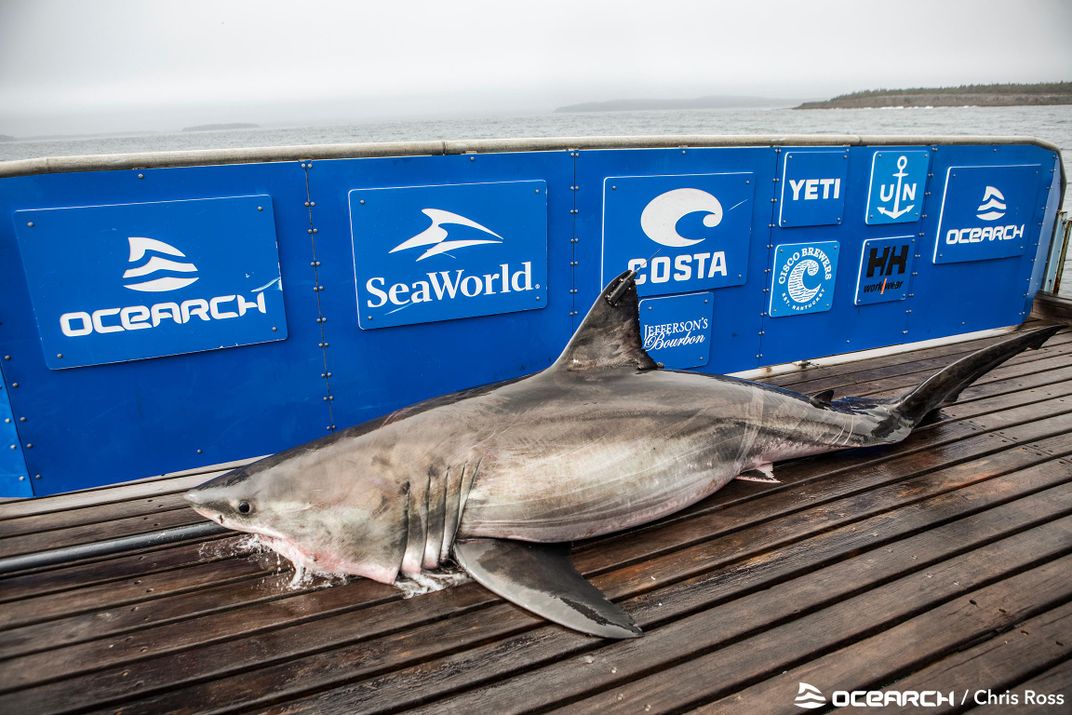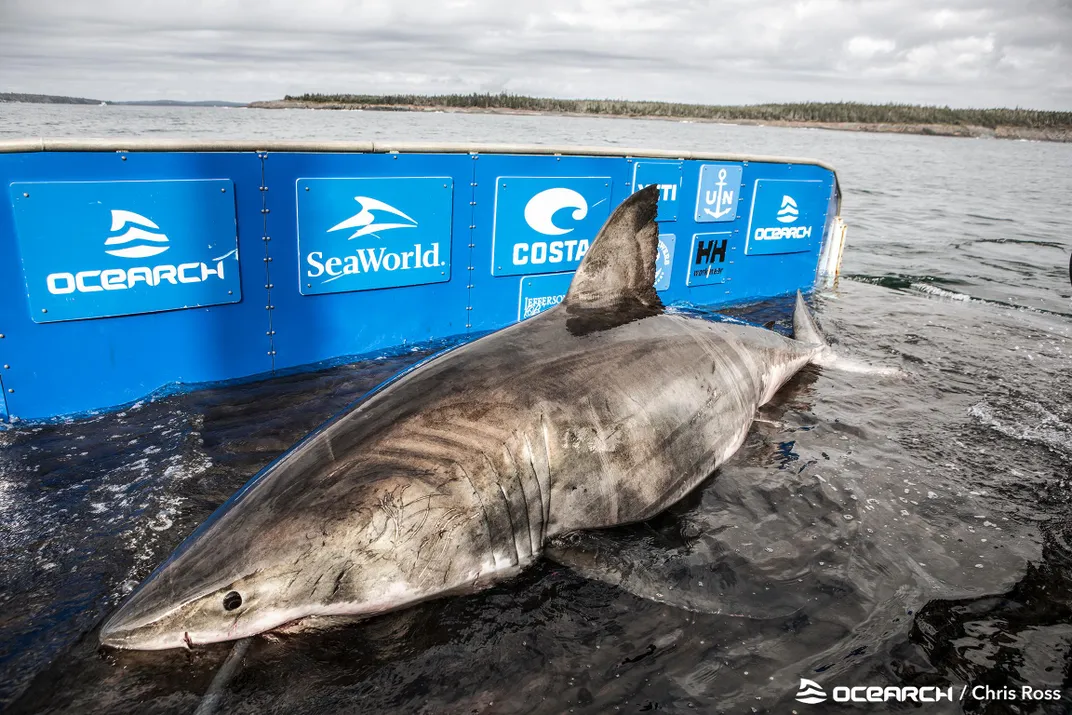Researchers Catch and Tag 17-Foot ‘Matriarch of the Sea,’ a 50-Year-Old Great White Shark
The OCEARCH team named the shark Nukumi, the Mi’kmaq people’s word for ‘grandmother’
/https://tf-cmsv2-smithsonianmag-media.s3.amazonaws.com/filer/93/31/93317779-26c1-4510-904a-a1fd11a7b487/2020_oct6_nukumi1.jpg)
On the morning of October 2, a team of scientists working with the non-profit OCEARCH caught and tagged the largest great white shark they’ve seen in the Northwest Atlantic: a 17-foot-long female shark estimated to be about 50 years old, Doha Madani reports for NBC News.
At half a century, some of the shark’s first pups could very well have pups of their own. The team dubbed the giant shark “Nukumi” after the legendary wise grandmother figure of the Mi’kmaq people of Nova Scotia. After bringing the shark on board the research vessel, the team collected blood and bacteria samples and attached a location tag that will track her movement around the Atlantic.
“It’s really humbling to stand next to a large animal like that,” expedition leader Chris Fischer says in a video shared on OCEARCH’s Facebook page. “When you look at all the healed over scars, all the blotches and things that are on her skin, you’re really looking at the story of her life, and it makes you feel really insignificant.”
Fischer adds that Nikumi is a “queen of the ocean,” and a “matriarch of the sea.”
OCEARCH has organized shark-tagging expeditions for over ten years in both the Atlantic and Pacific oceans. The organization aims to understand how sharks and other marine animals travel in the oceans and what brings them back to certain areas each year.
"When you look at this particular area where we are right now, the great white are the guardians of all of your fish stocks, they're preventing the seals from over-foraging and crashing the whole system," Fischer tells CBC’s Anjuli Patil.
"We know when the white sharks are present, and where there are seals are as well, that the seals during that period of time will eat one-fourth as much each day than they would if the white shark was not present," he adds.
The Nova Scotia expedition, which ends today, is OCEARCH’s third shark-tagging expedition of 2020. In the nearly monthlong trip, they caught and tagged eight great white sharks. From each shark, the scientists gathered samples of bacteria from their mouths as well as blood samples, according to a statement. The samples will contribute to 21 research projects currently underway at 24 different institutions.
When the team caught Nukumi, they also conducted ultrasounds, hoping to see clearer images than they could gather on smaller, younger sharks, according to a video posted on the OCEARCH Facebook page today. The researchers also plan to study whether her blood samples illuminate any differences between the older adult shark and younger adult or juvenile sharks.
None of the other seven sharks caught and tagged during the Nova Scotia 2020 expedition can match Nukumi’s 3,541-pound weight. And at about 50 years old, she may have about a decade left ruling the seas, since great white sharks usually live to about 60 years old.
Nukumi is even larger than another giant female shark, Mary Lee, was when OCEARCH caught and tagged her in 2012. Mary Lee was about 16 feet long and 3,456 pounds when she was first caught just over eight years ago, Jane Lee reported for National Geographic at the time. OCEARCH’s website allows anyone to see Mary Lee’s path from Massachusetts’ Cape Cod, around Bermuda and as far south as Jacksonville, Florida.
Over time, Nukumi will build up a similar trackable path with pings around Nova Scotia.
The expedition team kept a video log of their journey because Covid-19 regulations did not allow for the usual outreach efforts that they would pursue while studying sharks.
“We are asked all the time why white sharks seem to suddenly be appearing here off the Nova Scotia coast,” Fischer says in a statement. “The reality is that we suspect they’ve been here for quite some time, we just know about them now.”

